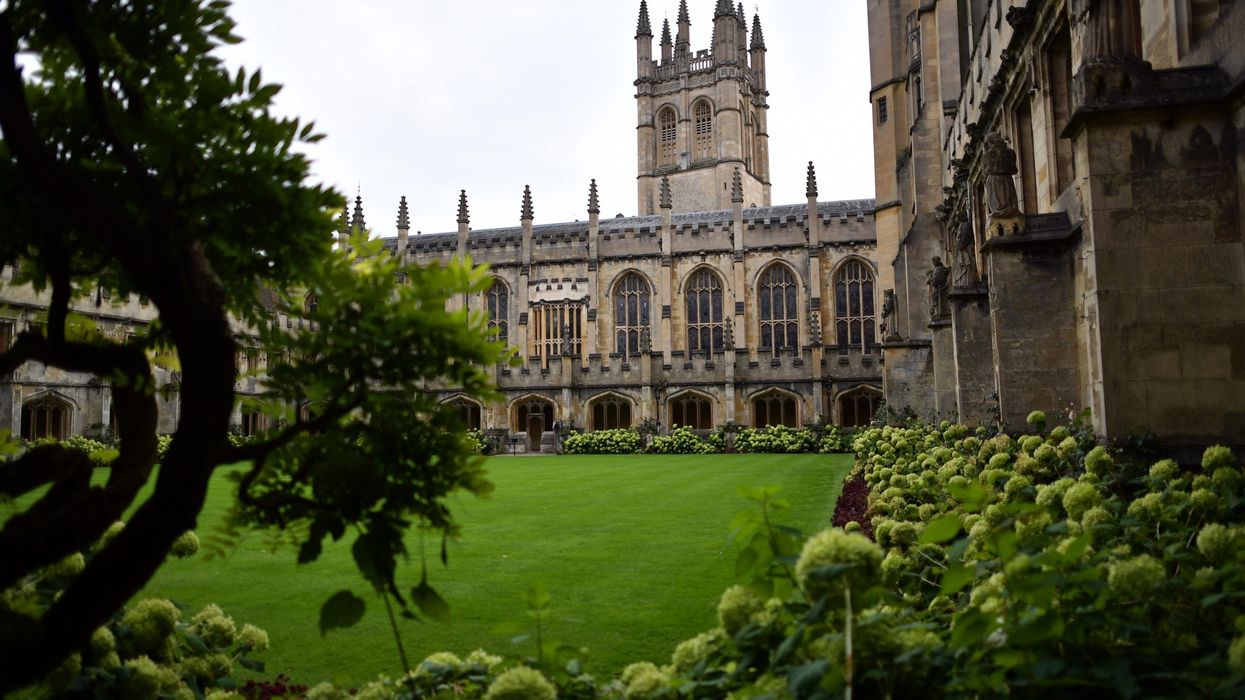An Eid formal dinner scheduled on April 23 has sparked accusations that Magdalen College is "cancelling" St George's Day festivities, The Telegraph reported.
Prior to the pandemic, the college held an annual banquet in honour of England's legendary patron saint, where dons, fellows, and students feasted together amidst the college's spires.
On St George's Day this year, Magdalen College has scheduled a formal dinner to celebrate Eid, the Islamic festival that marks the end of Ramadan, while forgoing any other formal meals or dinners in honour of England's patron saint.
This decision by the college's president, Dinah Rose KC, has caused controversy among the college's dons, who have criticised the move as "barking mad" and a missed opportunity to commemorate the occasion.
Magdalen College's vice-president, Prof Nick Stargardt, sent an email to hundreds of lecturers and students inviting them to a formal Eid dinner in the Hall.
The email stated that the meal would be halal and no alcohol would be served.
Despite Eid falling on April 21, the dinner will take place on April 23, the same day as St George's Day. The college is also hosting a separate vegetarian dinner on April 21.
Although Magdalen College claims it does not have a tradition of celebrating St George's Day, records seen by The Telegraph show that the college hosted dedicated dinners for the occasion in the four years leading up to the pandemic, from 2016 to 2019.
In 2018, the former college vice-president invited lecturers to a formal hall and high table with a special English menu, accompanied by "Grace and English Music by the Clerks followed by an oration" to celebrate the day.
An anonymous don from Magdalen College has criticised the decision to cancel St George's Day, citing it as an example of the "deep antipathy" that academic institutions have towards the country.
Another don described it as "barking mad" and pointed out the president's left-wing comments on Twitter.
History professor Robert Tombs expressed concern over the idea that one celebration should replace another and the notion that an English celebration is somehow unacceptable in an English college at an English university.
While he supports celebrating Eid, he finds the decision to cancel St George's Day worrying, he said.
Sir Peter Bottomley, a senior Tory MP and secretary of the all-party parliamentary group for St George's Day, said he would attend the Eid meal if invited but would expect the college to make formal meals more inclusive in the future.
He added that if the college excluded Christian or national festivals, he would ask them why, though he doubts they would.
While Magdalen College will still fly a St George's Day flag, some in the college feel it is not fitting enough for such a pivotal Christian occasion as April 23 marks the anniversary of the death of Saint George in 303 AD, who is the patron saint of England.
This day is also known as The Feast of Saint George.
The row highlights concerns that traditions, especially Christian ones, are being eroded on some British campuses.
In January of this year, the London School of Economics faced criticism from Christian campaigners for removing Christian terms and holiday names like Michaelmas, Christmas, Lent, and Easter in favour of more "international" names.
Similarly, last year, postgraduate students at Magdalen College voted to remove a portrait of Queen Elizabeth II, citing her representation of "recent colonial history" as unwelcoming.
According to a spokesman, Magdalen College will host an Eid dinner on 23 April but will still fly both the St George's and College flags on that day, although there is no formal dinner for St George's Day.
The spokesman added that the college celebrates all major Christian festivals and also marks Diwali, Lunar New Year, and Chanukah.




